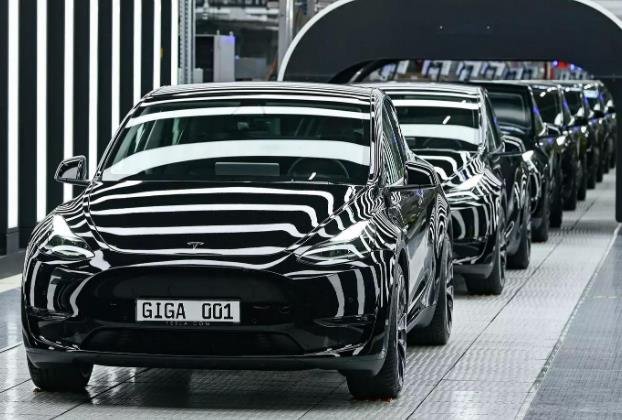Tesla Inc. has announced a new round of price cuts for its Model Y electric SUVs in China, sparking concerns of a renewed price war in the world’s largest auto market. The US-based automaker reduced the price of the Long-Range and Performance versions of the Model Y by 14,000 yuan ($1,900) to 299,900 yuan and 349,900 yuan respectively, according to a post on its Weibo account on Monday. The company also extended an 8,000 yuan insurance subsidy for the base version of the Model 3 sedan until the end of September.
Tesla Faces Stiff Competition in China
The price cuts come amid increasing competition from local rivals such as BYD Co., Nio Inc., Li Auto Inc., and Xpeng Inc., which have been gaining market share with their cheaper and more diverse offerings. Tesla’s sales in China fell 31% in July from June, marking its first month-on-month decline since December. The company delivered 32,968 vehicles in July, down from 48,075 in June, according to data from the China Passenger Car Association (CPCA).

Tesla’s market share in China’s new energy vehicle (NEV) segment also dropped to 11% in July, down from 18% in June and 21% in May, according to CPCA data. In contrast, BYD, which is backed by Warren Buffett’s Berkshire Hathaway Inc., saw its NEV sales surge 154% year-on-year to 60,858 units in July, claiming a 26% market share. BYD’s flagship model, the Han sedan, outsold Tesla’s Model 3 and Model Y combined in July.
Tesla Tries to Boost Demand with New Models and Features
Tesla is trying to boost its demand in China by launching new models and features. The company is expected to unveil its revamped Model 3 “Highland” sedan from its Shanghai factory soon, which will reportedly have a longer range and a new heat pump system. Tesla is also planning to introduce its Cybertruck pickup truck and Semi truck to the Chinese market next year.
Tesla is also adding more software features to its vehicles, such as a video game console and a karaoke function, to attract younger and tech-savvy customers. The company recently launched its FSD (full self-driving) beta software in China, which allows drivers to use some autonomous driving functions such as lane changing and parking. However, the FSD feature is not cheap, costing 64,000 yuan ($9,300) for a one-time purchase or 808 yuan ($118) for a monthly subscription.
Tesla Faces Regulatory and Quality Issues in China
Tesla’s price cuts may not be enough to overcome its regulatory and quality issues in China, which have tarnished its reputation and customer satisfaction. The company has faced several recalls, protests, lawsuits, and investigations over its vehicle safety, data security, and customer service in China this year.
In February, Tesla was summoned by Chinese regulators over quality issues such as battery fires, sudden acceleration, and software failures. In April, a woman staged a protest at the Shanghai Auto Show, claiming that her Tesla had faulty brakes that caused a crash. In May, Tesla was accused of using cameras in its cars to spy on Chinese customers and military facilities. In June, Tesla recalled nearly 300,000 vehicles in China over a software update that could cause cruise control to activate accidentally. In July, Tesla was sued by a customer who claimed that his Model X caught fire while charging.
Tesla has tried to address these issues by apologizing, offering compensation, improving its customer service, and enhancing its data security. The company has also set up a data center in China to store and process local data from its vehicles. However, these measures may not be enough to restore consumer confidence and loyalty in the long run.
Tesla’s Stock Sinks After Price Cuts
Tesla’s stock price took a hit after the announcement of the price cuts in China. The shares fell as much as 7.4% to $198.59 in New York trading on Monday, the lowest intraday level since April 2022. The stock closed at $202.65, down 5.3% for the day.
Analysts have mixed views on Tesla’s prospects in China. Some believe that the price cuts are a sign of weakening demand and margin pressure for Tesla, while others think that they are a strategic move to gain market share and fend off competition. Some also argue that Tesla’s growth potential in China is still huge, given that the NEV market is expected to grow rapidly in the coming years.
According to BloombergNEF, China’s NEV sales are projected to reach 1.9 million units this year, up from 1.3 million last year. By 2025, NEV sales are expected to reach 6 million units, accounting for 20% of China’s total auto sales.
